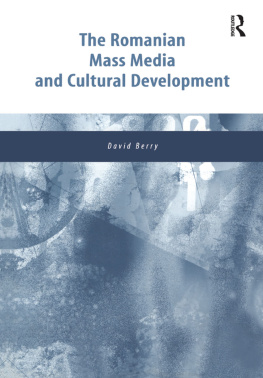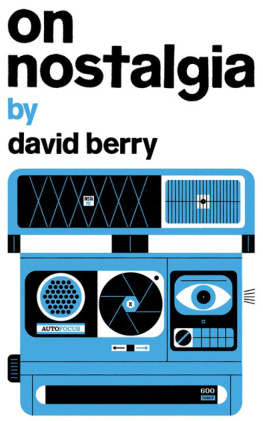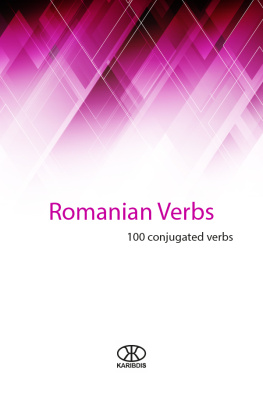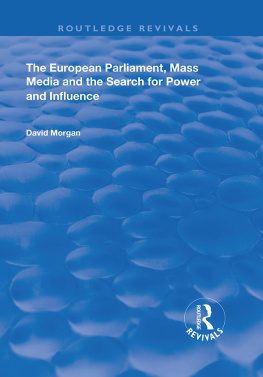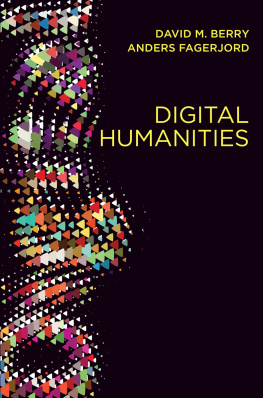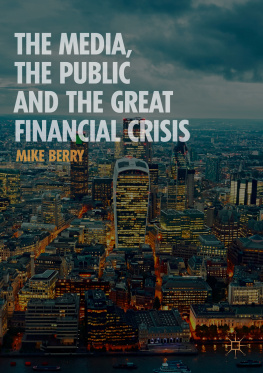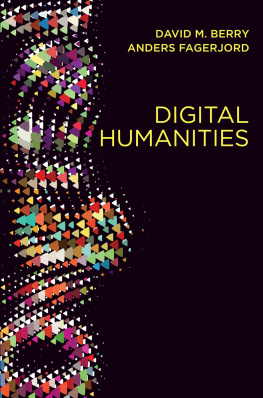THE ROMANIAN MASS MEDIA AND CULTURAL DEVELOPMENT
For Mam and Dad
who in their quiet way are truly inspiring
The Romanian Mass Media and Cultural Development
DAVID BERRY
Southampton Institute
First published 2004 by Ashgate Publishing
Published 2017 by Routledge
2 Park Square, Milton Park, Abingdon, Oxon OX14 4RN
711 Third Avenue, New York, NY 10017, USA
Routledge is an imprint of the Taylor & Francis Group, an informa business
Copyright David Berry 2004
All rights reserved. No part of this book may be reprinted or reproduced or utilised in any form or by any electronic, mechanical, or other means, now known or hereafter invented, including photocopying and recording, or in any information storage or retrieval system, without permission in writing from the publishers.
Notice:
Product or corporate names may be trademarks or registered trademarks, and are used only for identification and explanation without intent to infringe.
British Library Cataloguing in Publication Data
Berry, David, 1960-
The Romanian mass media and cultural development
1. Mass media - Social aspects - Romania 2. Romania - Civilization
I. Title
302.3'5'09498
Library of Congress Cataloging-in-Publication Data
Berry, David, 1960-
The Romanian mass media and cultural development / David Berry.
p. cm.
Includes bibliographical references and index.
ISBN 0-7546-1069-1
1.Mass media and culture--Romania. 2. Post-communism--Romania. I. Title.
P94.65.R6B472004
302.23'09498--dc22
2003060965
ISBN 13: 978-0-7546-1069-4 (hbk)
Contents
This book would not have been possible without the kind help of friends and acquaintances who in the course of my research were hospitable, courteous and generous in aiding my understanding of Romanian society. A special thank you to my research assistant in Bucharest, Mlina Frteanu, who despite other duties including examinations managed to translate and adjust important aspects of the text as well as sending valuable information to me on a regular basis. A very generous thanks to my friends Alexandru Bradu Ulmanu who I met way back in the summer of 1998; to Lumina Rusca, and Miruna Runcan. Thanks also to Monica Macovie for providing useful information concerning legal matters, to Dennis Deletant for his comments and suggestions for this book, and to Doina Zaharira and family for their kind hospitality and Plum Brandy in Sibiu. Thanks also to my friend and colleague Sanda Miller for suggesting this project in the first place and to both Maria Stoian and Bianca Karda for their kind help in translating the material from Adevrul and Romnia Liber. Thanks also to Smaranda Pavlosvitch for buying a front row ticket for me to see Beethovens 5th piano concerto at the Atheneaum in Bucharest. A big thank you to my dear friend Eugen Gergely at the University of Sibiu for his warmth, his intellect and his compassion. We met in 1998 by complete accident at Sibiu railway station and travelled by slow train to Bucharest, which passed like a whisper as we exchanged thoughts and ideas on Romania past, present and future. It was then in my naivety, that I began to understand the complexities concerning the historical and contemporary Romanian condition. Ill never forget that evening when we dined in a restaurant in Sibiu when you cried recounting the events in Cluj 1989, where you had witnessed the brutal deaths of innocent Romanians fighting for freedom. Finally, this would not be complete without a dear and heart-felt thank you to my dearest and closest friends, Anca and Emil Rdulescu, not forgetting Jackie the family dog. With the exception of one occasion I always stayed at your house where we would have some gentle and humorous discussions, some sad discussions and some volatile debates on Romania and other matters. Your generosity and friendship surpasses anything I have previously encountered. A big thank you to Anca for being so considerate and a big thank you to Emil a Master-Chef of stupendous proportions; I recommend your limb to everyone!
With the collapse of Romanian communism in December 1989 a new historical moment emerged that gave rise to a new era, namely post-communist Romania. The Christmas revolution of that year offered the possibility of change and provided an opportunity for Romania to develop a new political, social and economic system associated with Western capitalism. There were of course no absolute guarantees that Romania would develop this way and in many respects the revolutionary moment gave rise to a number of uncertainties regarding the character of post-communist Romania.
However, the revolution did guarantee the end of dictatorship and centralised control over all aspects of life. The defining moment of the revolution signalled the end of the nomenklatura as a collective organising body and other highly significant developments also occurred as a consequence of that historical moment, such as a multi-party system with free elections and a new parliamentary structure made up of the Chamber of Deputies and the Senate. Equally, the spirit of capitalism arose and developed producing new business elites and entrepreneurs that subscribe to free-market ideology, which has become a new tradition in the contemporary climate. These developments have in effect produced new forms of consciousness, public association and engagement that form the catalyst for change.
These are indeed significant moments in the development of Romanian society, but the key development that this book is concerned with is the introduction of a new mass media no longer directly controlled by the Romanian Communist Party and the main objective here is to assess the medias impact on the development of post-communist Romania.
Therefore, the primary concern is to understand the medias place and its role alongside other key moments in the developmental process. Central to this assessment is to consider whether the mass media could help democratise Romania by developing a public sphere and civil society, and as a consequence of the development of new forms of information networks, whether public opinion could effectively be formed and demonstrated through freedom of speech and freedom of association. Furthermore, the book also attempts to understand media impacts in relation to the development in changing patterns of identity, both collective and subjective in the context of recent events in Romania.
In this context, the book attempts to provide some understanding of the contemporary empirical form currently conceptualised as Romanian post-communism and to critically assess where Romania stands in relation to democratic development. What we cannot do is simply assume that Romania either is or can develop a democratic system purely on the basis of the collapse of Romanian communism.1 Therefore, this book attempts to dispel some of the myths concerning the trajectory of Romanian development and to illuminate new ideas on the essential character of the contemporary Romanian empirical form.
Considering Romanias authoritarian past, the issues concerning the development of a new media are partly based on the benefits it may bring to the Romanian public and there are a number of questions that follow on from this. First, could the media empower and expand public knowledge through a process of diversity and democratisation? Second, could the media help produce a political citizenship and a more critical public of established norms? Third, could the media act as a vehicle for enlightened thought and extend subjective cultural development?


